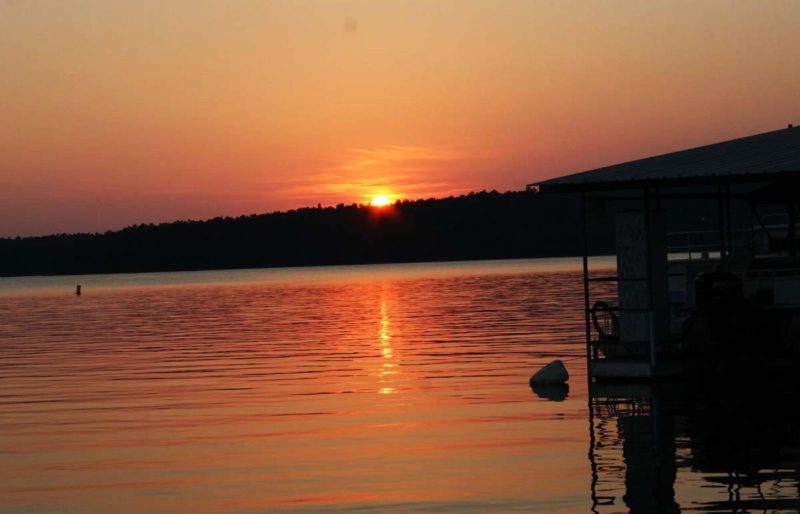
A major Bassmaster Elite Series fishing event last week near Mountain Home helped showcase the waters of the Ozarks, and the efforts to halt the spread of the troublesome zebra mussel to lakes that so far are free of the aquatic nuisance.
The four-day fishing tournament was held on both Bull Shoals Lake, which has been contaminated by the zebra mussel since it first appeared there in 2007, and nearby Norfork Lake, where efforts have been undertaken to keep the infestation of the nonnative mussel away.
Zebra mussels, native to Europe, first appeared in America in the Great Lakes region and have spread during the past decade into the South. Boaters who don’t take precautions can unknowingly move zebra mussels from an infected water source to one that hasn’t seen the species. Then, the mussels reproduce in great numbers and congregate in bunches, eventually causing havoc with pipes that serve municipal water supplies or power plants. They can be an aggravation to anglers, as the tiny mussels (usually one inch or smaller) can cut fishing line with their razor-sharp shells.
The zebra mussel infestation of Bull Shoals Lake sparked several conversations between B.A.S.S., the Arkansas Game and Fish Commission and the Missouri Department of Conservation leading up to the tournament, according to Jeremy Risley, an AGFC Fisheries Supervisor in Mountain Home.
The tournament schedule originally called for alternating days for 109 competitive fishermen on Bull Shoals and Lake Norfork, before cutting to the top 50 fishermen to return to Bull Shoals for round three. However, a cooperative effort among B.A.S.S., the Arkansas Game and Fish Commission and the Missouri Department of Conversation led to a rescheduling, putting the first and fourth days of the tournament at Norfork and the middle two days at Bull Shoals, significantly reducing the number of boats that would go from Bull Shoals back to Norfork for the final day.
“They still gave the opportunity where B.A.S.S. could have all the tournament fishermen on Bull Shoals for one day and would reduce the number of boats going from Bull Shoals to Norfork from 50 to just 12,†Risley said.
Before heading to Norfork Lake, those dozen boats were mandated to participate in a “car wash†to rid any sign of zebra mussels. The remaining 38 boats that were used on Bull Shoals on Saturday were given the option of going through the wash on their way to the next fishing stop as well.
Research has shown that both adult zebra mussels and the larvae cannot withstand heat reaching 140 degrees. So the boats were power-washed with water at 140 degrees as well as hand-washed, Risley said. Live wells also were cleaned.
“The fishermen that went through the wash were very receptive to what we were doing,†said Risley, who noted that officials from Arkansas and Missouri and several volunteers participated in the project to decontaminate the boats. “Each boat took less than five minutes. We were able to do three boats at a time. Also, the camera boats were washed and B.A.S.S. disinfected all their weigh-in equipment.†Risley said, “We wanted to showcase the message of cleaning boats going from Bull Shoals to Norfork to the public, to show that when you go from a body of water with zebra mussels to one without, you need to do what’s necessary, but that it’s pretty simple to do. The main point was that it was a cooperative effort between Arkansas, Missouri and B.A.S.S. to make this work.â€
